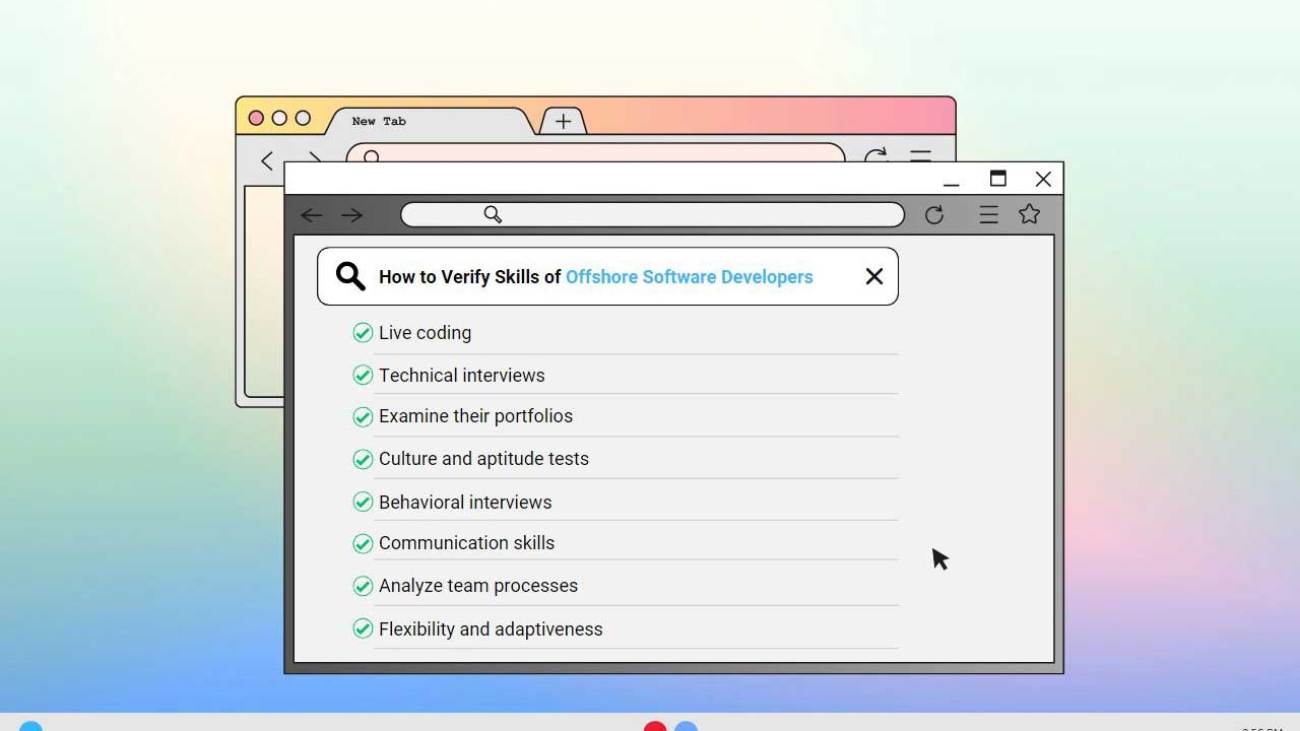When you hire offshore software developers, you cannot examine them upfront but rather remotely.
After the Covid-19 pandemic, you can’t expect someone to ignore or rebut the advantages of going remote. The remote workforce has increased exponentially since that pandemic and continues to expand to this day. These employees, each functioning under different work models, have something vital to offer to business owners, flexibility, and cost-effectiveness.
Among the many working models is staff augmentation and offshore development. Without a doubt, the offshore software development industry towers over other sectors in global economies. The offshore software development market size was estimated to be worth USD 122,257.5 million in 2021 and is predicted to reach USD 283,457.5 million by 2030, growing at a steady CAGR of 10.13% from 2022 to 2030.
Hence, you need to be able to properly assess their skill sets and expertise from afar as it will determine the success of your tech project.
Verifying Skills of Offshore Software Developers
Live Coding
Live coding tests are one of the best ways to have a real-time assessment of offshore software developers. By conducting this live examination, you can test their coding skills, time management, reaction to errors or feedback, and collaboration with project managers or other developers. You can also check the style and effectiveness of communication.
Technical Interviews
Technical interviews with structured questions are a mandatory part of evaluating offshore software developers. These interviews can help you understand their tech stacks, their specialties, and any shortcomings they may have. This will help you choose a company that has the strongest tech expertise that matches the needs of your project.
Culture and Aptitude Tests
Culture and aptitude tests are designed to look at other aspects of developers other than the technical side. You can evaluate the company culture of the vendor company by putting their developers in different hypothetical scenarios to see how they respond. You can also take aptitude tests for the developers to test their cognitive abilities and emotional intelligence.
Behavioral Interviews
Offshore software developers are not part of your in-house team and naturally, they may have different attitudes and behaviors that pertain to their own company. Behavioral interviews are handy for these situations where you need to assess whether the developer’s attitude, behavior, and values will match your company and requirements.
Examine Their Portfolios
While examining the vendor company portfolio is compulsory, it is also essential to study the individual developer portfolios as well. Now, this is a tedious task, and you may not be able to explore all the developer’s previous work, but you can check out a few to get a general idea. You can examine their GitHub, programming portfolios, and more.
Analyze Team Processes
Not all software companies employ the same team processes and operational methods. Finding one that matches your operational style might benefit your project’s growth. So, ask developers about how they conduct scrums, the effectiveness of scrums, scrum masters, project managers, and agile scrum processes, etc.
Communication Skills
One of the main drawbacks of remote work is communication and language barriers. Before choosing a vendor company, test out and assess the smoothness of communication with developers, their availability, and their language fluency. While having developers available 24/7 is an unrealistic expectation, you can try to check if they are mostly available during your company’s working hours.
Flexibility and Adaptability
Remote work revolves around flexibility and adaptability. Before settling on a client company, check how far they are willing to stretch in terms of flexibility. As for adaptability, you will need to evaluate some of the points mentioned above to see if their developers are adaptable or not.
Wrapping Up
Choosing the best offshore developers who are part of a good offshore development company is going to be a good way to move forward with your tech project. Partnering up with an offshore software development company can provide the benefits of offshore developers but with greater supervision, visibility, and flexibility. You can also predict costs, have access to a diverse talent pool, choose from expert resources, and have more accountability from the partner company.
Choosing an offshore software development partner is a lot like recruiting a new member within your company. You need to put in just as much dedication as you would for your own recruitment for the remote team. Only then can you truly scope out the best resources from the rest.
However, your approach might be unique to your company and its requirements so feel free to switch things up to find out what works best for you. Choose a company you think can work as a partner rather than a vendor and one that has your best interests in mind.

Add a Comment